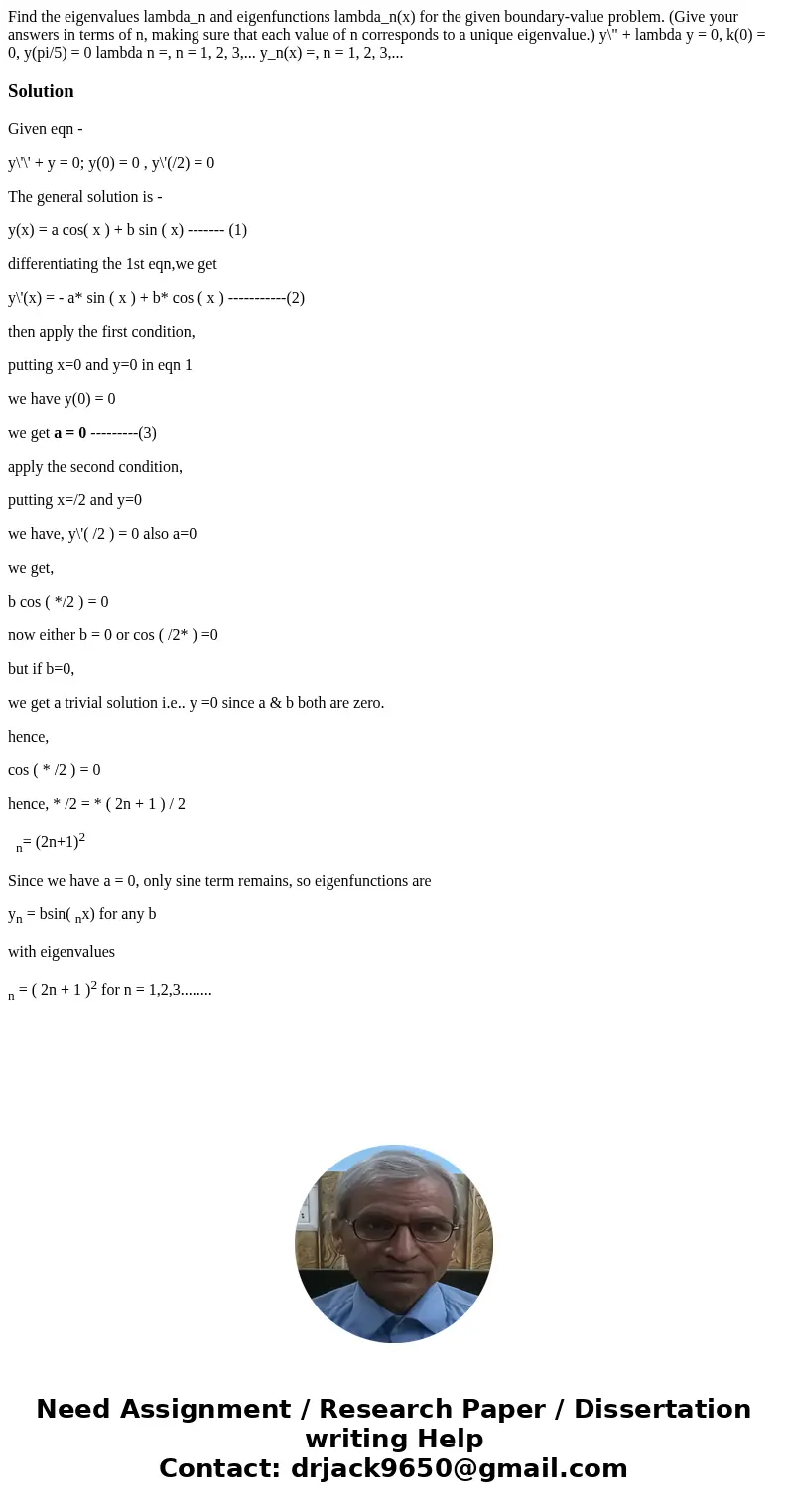Find the eigenvalues lambdan and eigenfunctions lambdanx for
Find the eigenvalues lambda_n and eigenfunctions lambda_n(x) for the given boundary-value problem. (Give your answers in terms of n, making sure that each value of n corresponds to a unique eigenvalue.) y\" + lambda y = 0, k(0) = 0, y(pi/5) = 0 lambda n =, n = 1, 2, 3,... y_n(x) =, n = 1, 2, 3,...
Solution
Given eqn -
y\'\' + y = 0; y(0) = 0 , y\'(/2) = 0
The general solution is -
y(x) = a cos( x ) + b sin ( x) ------- (1)
differentiating the 1st eqn,we get
y\'(x) = - a* sin ( x ) + b* cos ( x ) -----------(2)
then apply the first condition,
putting x=0 and y=0 in eqn 1
we have y(0) = 0
we get a = 0 ---------(3)
apply the second condition,
putting x=/2 and y=0
we have, y\'( /2 ) = 0 also a=0
we get,
b cos ( */2 ) = 0
now either b = 0 or cos ( /2* ) =0
but if b=0,
we get a trivial solution i.e.. y =0 since a & b both are zero.
hence,
cos ( * /2 ) = 0
hence, * /2 = * ( 2n + 1 ) / 2
n= (2n+1)2
Since we have a = 0, only sine term remains, so eigenfunctions are
yn = bsin( nx) for any b
with eigenvalues
n = ( 2n + 1 )2 for n = 1,2,3........

 Homework Sourse
Homework Sourse